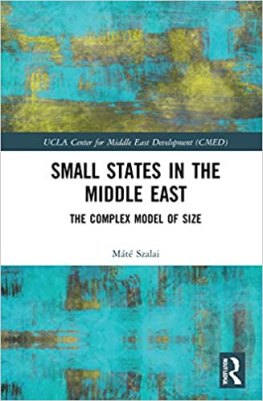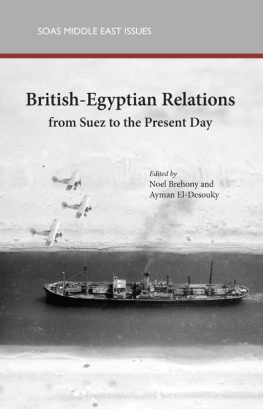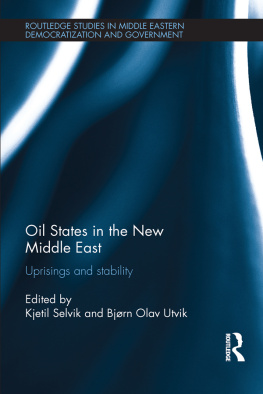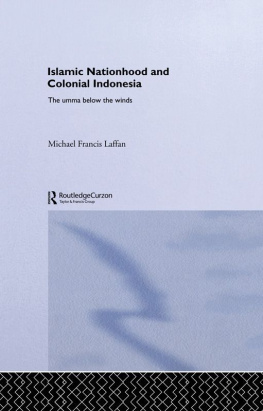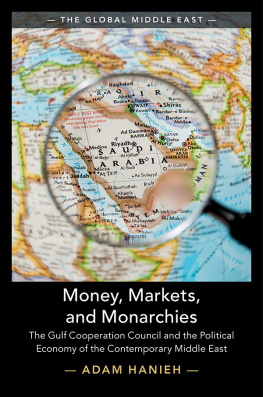Introduction
Robert Springborg
This book is the product of two conferences on the Gulf organised by the London Middle East Institute. The first, held in February 2005, was devoted to the changing nature of family and kinship in the countries of the Gulf Cooperation Council and gave rise to an earlier publication in the SOAS Middle East Issues series, The Gulf Family. Discussion in the final session of that conference about what topic would be most compelling for a follow-on event revealed that the GCC citizens present favoured a conference that would highlight Gulf culture. They expressed a desire that the world be made aware of the fact that the Gulf did indeed have its own distinctive culture which was founded in traditional practices and social organisation, but which was evolving rapidly in tune with the rapid modernisation of the region. They emphasised that Gulf culture is distinguishable from other Middle Eastern cultures, hence needs to be appreciated and analysed in its own right and not as some derivative form.
It was clear that the sentiments expressed were heartfelt, reflecting a certain disappointment and possibly even resentment that the rest of the world, including other parts of the Middle East, has tended to be dismissive of indigenous Gulf culture. Indeed, this seems well founded, as suggested by the coexistence of mutually exclusive stereotypes of Gulf culture. One view is that the Gulf is a backward region in which inadequate education, easy wealth, male dominance and persistence of tribalism have militated against cultural dynamism, so traditional cultural norms and practices persist. A contrasting view is that the region is super modern, with the rapid pace of globalisation having thoroughly undermined traditional culture, replacing it with a cosmopolitan, international one in which women are leading the way. A negative view that combines these two opposites suggests that traditional culture has essentially been destroyed while a modern one has yet to take root, so the Gulf is essentially without culture. Small surprise, then, that citizens of the Gulf feel misunderstood and misrepresented, even in the Middle East, to say nothing of the world beyond.
A decision was thus reached at that conference to organise a follow-on event, which was duly held in February 2007 under the title Popular Culture and Political Identity in the Arab Gulf States. The central aim was to reflect the diversity of Gulf culture while investigating its sources, pressures for change and its articulation with authority structures, most importantly that of states. Topics were chosen that would address several key points. First, it was deemed important to convey the sense of how close the Gulf is to its premodern past and what efforts are being made to connect citizens to that past. The volume commences with an overview by Fred Lawson and Hasan al-Naboodah of steps taken by the government in the UAE to preserve and project that countrys cultural heritage, which the authors see as exemplifying an initial stage in the development and articulation of nationalism. In the living memory of many of its citizens, Gulf economies were based on pearling, trade, fishing and agriculture, with social units organised around those functions. Reflections by UAE elders contained in the chapter by Nadia Rahman and based on an extensive oral-history project in the UAE described also by Lawson and Naboodah, as well as reflections on pearl diving in Kuwait found in Sulayman Khalafs contribution, provide ample evidence of both the nearness of those pasts as well as their almost complete submersion by rapid socioeconomic change.
A closely related topic was that of how states seek to foster collective memories of common origins and general appreciation of shared pasts so as to reinforce and anchor sovereignty in imagined communities. Cultural-heritage preservation programmes for material culture are examples of such state-led efforts, as Mohammed Alkhozais chapter indicates in the case of Bahrain. Sulayman Khalafs just-mentioned chapter is based on an endeavour by the Kuwait government to eulogise and indeed preserve the behavioural culture surrounding pearl diving.
A third area for investigation was that of forms of contemporary cultural expression. An interesting, possibly unique feature of Gulf culture is its ability to synthesise traditional and modern forms within the Gulf vernacular and then to project them into the Arab world beyond, by means of the vast media resources based in the Gulf. Poetry, long a medium of personal, social and political expression in the Gulf, is an excellent case in point. The runaway success of Poet of Millions, a television programme in which poet contestants utilise traditional poetic forms to address contemporary issues, exemplifies this synthesis and its spreading appeal. The more conservative presentations by Gulf performing artists have contributed to their popularity in an increasingly religious Arab world. Nimah Nawwabs poetry and reflections on it in this volume provide illustrations of the rapid evolution of this form of expression and its application to even quite sensitive personal, social and political issues. The incredible popularity of football in all GCC states, its centrality to cultural expression and its utility in forging strong national cultural identities, are themes explored by Abdullah Baabood. Nada Mourtada-Sabbah and her co-authors focus explicitly on the role of the media, in the form of both programmes and advertisements, in projecting a globalised culture within a Gulf vernacular. They conclude that despite the use of that stylistic vernacular, global norms and ethics promoted by the media are rapidly eroding what remains of traditional lifestyles and beliefs.
The implications of rapidly changing popular culture in the region for political cohesion, identity and authority provided the final area of investigation. As just mentioned, Gulf states are seeking to assert their sovereign lineages and the collective identities of their native citizens through support for a wide range of cultural-heritage preservation activities. But the relationship between state and society, between politics and culture, is not just a top-down one. Political systems and states are also shaped by cultural forces welling up within society. Indeed, cultural change can take on ominous, threatening tones for established political orders. Christopher Davidson takes up this theme in his investigation of how different rates and types of economic change in two emirates within the UAE illustrate the risks of possibly overly rapid change. His prognosis is that Dubai, globalising at a faster pace than anywhere else in the Gulf or possibly the world, will confront the issue of cultural anomy and even the disaffection of its native population. By contrast, Amr Hamzawy emphasises a pattern of state-society accommodation that is long established in the region. Despite rapid sociocultural and economic change, including growing heterogeneity of Gulf populations and an accompanying tendency to perceive and act upon particular interests, established political frameworks are not, in his view, under serious threat. Ruling families and the states that they, along with their populations, have constructed, are accorded legitimacy and acceptance within the context of a statesociety bargain that allows for a steady expansion of public space. The rapid evolution of Gulf culture, obviously shaped but not determined by state policies, attests to the fact that those policies are not intended to thwart cultural expression or change.


